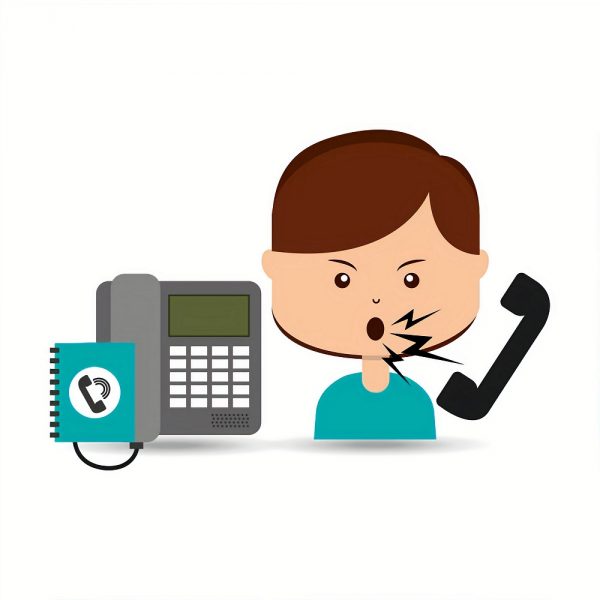Ofcom Relaxes UK Broadband ISP Protections During COVID-19

The UK telecoms regulator, Ofcom, has softened some of their key consumer protection rules for broadband ISPs and mobile network operators, although their new light-touch approach to enforcement will only remain so long as the current COVID-19 (Coronavirus) lockdown persists.
Most of the major communication providers have already agreed to a set of “important commitments” with Ofcom and the Government (DCMS) help to support and protect “vulnerable consumers” during the crisis (here), as well as those who may become vulnerable due to circumstances arising from COVID-19.
At the same time the regulator has just acknowledged that some of their usual rules and regulations, which exist to help protect consumers (e.g. automatic compensation for protracted internet outages, broadband speed rules and end-of-contract notifications), will have to be relaxed because operators are currently unable to function at their usual level.
Advertisement
Indeed staff shortages are a particularly huge problem right now and, elsewhere, engineering teams have been stretched thin, which means that many operators are currently focusing much of their energy on core tasks like network maintenance, repairs and essential work or support.
Ofcom Statement
We recognise [the current situation] might affect the companies’ ability to comply with some of our rules during this time. We have written to the providers explaining that we will take account of the unique circumstances when enforcing our rules.
For example, we appreciate activities like end of contract notifications, which providers are required to send when customers are approaching the end of their minimum contract term, might be driving additional traffic to call centres at a time when organisations need to prioritise calls from vulnerable people and those that are having difficulties staying connected.
So, while we are encouraging providers to send these notifications as normal, we will take a pragmatic approach to compliance with rules like this, recognising the significant challenges providers face at this time and the steps they need to take to respond to the impact of the coronavirus.
The regulator also highlights other examples, such as with how part of their Broadband Speed Code of Practice, which normally gives ISPs 30 days to resolve a problem before allowing customers to exit their contract without penalty, may be affected. “Some speed problems will take longer to solve, for example, because of a shortage of staff or engineers may not be able to visit people’s homes. We are in close contact with providers to understand how they are meeting these requirements,” said Ofcom.
Likewise the new system of Automatic Compensation is heavily dependent upon engineering resources and imposes some very tight time-scales, which in the current climate would struggle to be met; through no fault of the network operators. “For the period that these unique circumstances apply, providers will not need to pay automatic compensation where they are unable to meet the requirements for repairs, installations and home visits in the scheme. This is in line with an exception in the scheme that applies to ‘civil emergencies’,” said Ofcom.
However, on compensation, the regulator warned that they still expect ISPs to “provide the best possible service and do what is right by their customers, particularly those who are vulnerable” and as part of that they “must also stop charging customers who are without service.”
Advertisement
“We do not take these decisions lightly. And while we acknowledge the difficult circumstances that telecoms companies are in, that does not mean customers should be exploited. If we see evidence that is happening, we will step in and take action,” said Ofcom.
Sorry to our readers for being late with this news, which came out yesterday. I initially thought it was just another rehash of Saturday’s announcement, before taking a closer look.
Mark is a professional technology writer, IT consultant and computer engineer from Dorset (England), he also founded ISPreview in 1999 and enjoys analysing the latest telecoms and broadband developments. Find me on X (Twitter), Mastodon, Facebook, BlueSky, Threads.net and Linkedin.
« Vodafone UK in Welcome U-Turn Over Turkey Roaming Hike
COVID-19 Netgem TV and Vodafone Update on Internet Traffic »






















































“Sorry to our readers for being late with this news, which came out yesterday.”
You’ve nothing to worry about. Ofcom taking until now to come up with this is the failure…
It was obvious to anyone they should have done this on day 1 of the lockdown.
Virgin suspended their compensation scheme on the 25th March.
https://www.virginmedia.com/help/automatic-compensation
I’m currently 6 weeks into an installation that was to take 3 days, and the best I can say is that they are having a few problems coping with the workload and all the COVID changes.
I don’t understand, are ISPs really at serious risk of going bust if they didn’t renege on these consumer protections?
I can see no other reason for OFCOM to allow them to drop them otherwise.
We just appear to be rewarding an industry that clearly had poor business continuity plans.